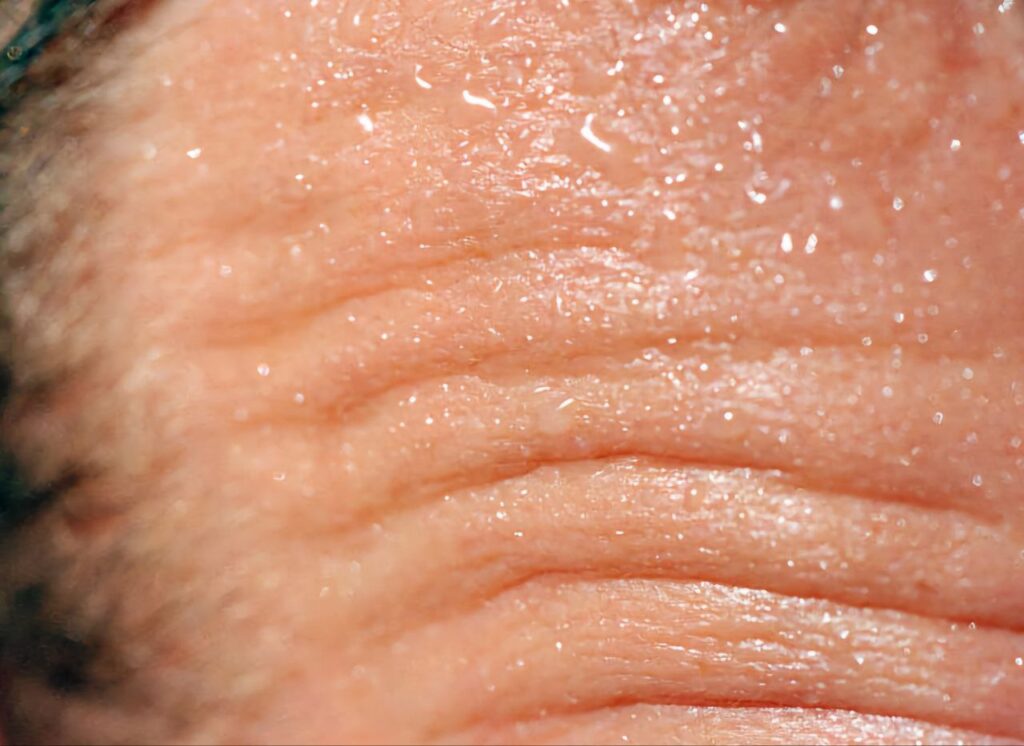Vitamin D deficiency is known for causing typical symptoms such as lower back pain, depression, and high blood pressure. However, there are several lesser-known and bizarre symptoms that you may not be aware of. In this article, we’ll explore these unusual signs and explain why vitamin D plays such a crucial role in our bodies.
1. Head Sweating
One of the first and most unusual symptoms of vitamin D deficiency is excessive sweating on the head. This is common in infants but can also occur in adults. If you or a loved one notice increased sweating, particularly on the scalp, it may be time to check your vitamin D levels.

2. Night Sweats
Another common sign of deficiency is sweating more than usual during the night. If you wake up to a damp pillow or find yourself excessively sweating while the room remains cool, this could be linked to low vitamin D.
3. Mood Swings
Vitamin D is vital for mood regulation, as it influences key neurotransmitters like serotonin. If you find yourself frequently shifting between happiness, irritability, anger, or sadness, low levels of this essential vitamin could be the cause.
4. Procrastination and Lack of Motivation
Feeling unproductive and procrastinating more than usual? Vitamin D plays a role in motivation by affecting the brain’s dopamine levels. Low vitamin D can make it harder to focus and get things done.
5. Panic Attacks
Vitamin D deficiency may contribute to panic attacks, characterized by sudden feelings of severe fear or anxiety. Although vitamin B1 deficiency is often linked to panic attacks, vitamin D also plays a role in regulating neurotransmitters like serotonin, which helps stabilize mood.
6. Achiness in Pelvis, Lower Back, and Upper Legs
An achy sensation in your pelvis, lower back, or upper legs is often connected to vitamin D deficiency. This pain stems from a condition known as osteomalacia, where the bones soften due to insufficient vitamin D. You may not experience sharp pain but rather a deep, dull ache in these areas.
7. Loss of Muscle Strength
Vitamin D directly impacts muscle function, especially in the legs and shoulders. Without adequate vitamin D, muscles struggle to contract properly due to insufficient calcium absorption. This can result in weakness and difficulty with activities requiring strength.
8. Stiffness in Joints
Stiffness, particularly in the knees and fingers, can be a symptom of vitamin D deficiency. This is because vitamin D plays a key role in maintaining cartilage and collagen, both essential for joint health. When levels are low, inflammation can increase, leading to stiffness.
9. Chronic Fatigue
Feeling constantly tired, even after a good night’s sleep? Vitamin D deficiency may affect your mitochondria, the energy producers in your cells, reducing the overall energy output. Additionally, a weakened immune system caused by low vitamin D can leave you more vulnerable to viral infections, which can sap your energy levels.
10. Mental Sluggishness
If you’ve noticed a decline in your ability to think quickly, make decisions, or concentrate, vitamin D could be the culprit. A deficiency can impair cognitive functions, causing slower mental processing and poor focus.
11. Difficulty Feeling Full After Eating
Vitamin D deficiency can interfere with hormones like leptin and insulin, which regulate hunger and satiety. Without sufficient vitamin D, these hormones may not function properly, leaving you unsatisfied after meals and prone to overeating.
If you found these symptoms of vitamin D deficiency surprising, you’ll want to check out our article on zinc deficiency to learn about another essential nutrient that can impact your health in unexpected ways.
- Braised Halibut with Carrots and Coriander: A Weeknight Delight
- Understanding Supraspinatus Tendinopathy with Partial Thickness Tear: Symptoms, Treatment, and Recovery
- Stevia: Why You Should Always Read Labels on Keto-Friendly Products Carefully
- Erythritol: A Comprehensive Guide to the Pros and Cons of This Popular Sweetener
- Tasty- Yummy Tex-Mex Chicken and Rice